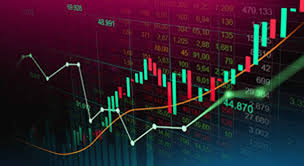Understanding Forex Trading Servers A Comprehensive Guide 1862727516

Understanding Forex Trading Servers: A Comprehensive Guide
In the fast-paced world of forex trading, robust infrastructure is essential for the success of traders and brokers alike. One of the most critical components of this infrastructure is the forex trading server. These servers play a fundamental role in facilitating trades, managing data, and ensuring seamless connectivity between traders and the global financial markets. If you are venturing into the forex realm, especially in regions like Latin America, where forex trading servers Latin America Trading is gaining momentum, understanding the mechanics of trading servers is vital.
What Are Forex Trading Servers?
Forex trading servers are specialized servers designed to handle trading activities within the foreign exchange market. They process orders, manage transactions, and provide real-time market data to traders and brokers. These servers ensure that all trades are executed quickly and efficiently, minimizing latency and maximizing chances of profitability.
Types of Forex Trading Servers
There are generally two types of forex trading servers: dedicated servers and cloud-based servers. Each has its distinct advantages and suits different trading strategies and requirements.
Dedicated Forex Trading Servers
Dedicated forex trading servers are physical servers that are exclusively used for trading activities. They offer high performance and low latency, making them ideal for high-frequency trading strategies. Traders who require minimum downtime opt for dedicated servers to ensure their trades execute without delay. However, these servers can be expensive, and managing them requires a certain level of technical knowledge.
Cloud-Based Forex Trading Servers
Cloud-based forex trading servers, on the other hand, leverage the scalability of cloud computing. They offer flexibility and can be tailored to specific trading needs. Traders can access cloud servers from anywhere, making them suitable for traders who travel frequently or work remotely. While cloud servers might not always provide the same level of speed as dedicated servers, they often come at a lower cost and are easier to set up and maintain.
The Importance of Latency in Forex Trading

Latency—the delay between sending a trade order and its execution—plays a crucial role in forex trading. High latency can result in slippage, where a trade is executed at a different price than expected. This can significantly affect trading outcomes, especially in volatile markets. Using high-performance forex trading servers minimizes latency and ensures trades are executed swiftly and accurately.
Choosing the Right Forex Trading Server
Selecting the appropriate forex trading server is akin to choosing the right broker. Factors to consider include:
- Location: The geographical location of the server can impact speed. Servers located close to major financial centers (like New York or London) typically offer better performance.
- Performance: Look for servers that guarantee low latency and high uptime.
- Scalability: Consider whether the server can grow with your trading ambitions.
- Costs: Weigh the costs against the features and performance of the servers offered.
Security Features of Forex Trading Servers
Security is paramount in forex trading, given the sensitive nature of financial transactions. Reliable forex trading servers offer robust security measures, including:
- Encryption: High-level encryption protocols protect data transfer between the server and the trader.
- Firewalls: These provide an additional layer of protection against cyber threats.
- Regular Updates: Keeping server software updated ensures any vulnerabilities are promptly addressed.
Conclusion
In summary, forex trading servers are central to the successful execution of trades in the foreign exchange market. Whether you choose dedicated or cloud-based servers, understanding their functionalities, implications on trading performance, and security features are crucial for making informed decisions. As the forex market continues to evolve, especially in dynamic regions such as Latin America, the choice of trading server can significantly impact overall trading success.
Equipped with this knowledge, traders can optimize their setups, ensuring they have reliable, efficient, and secure trading environments for navigating the complexities of the forex landscape.
